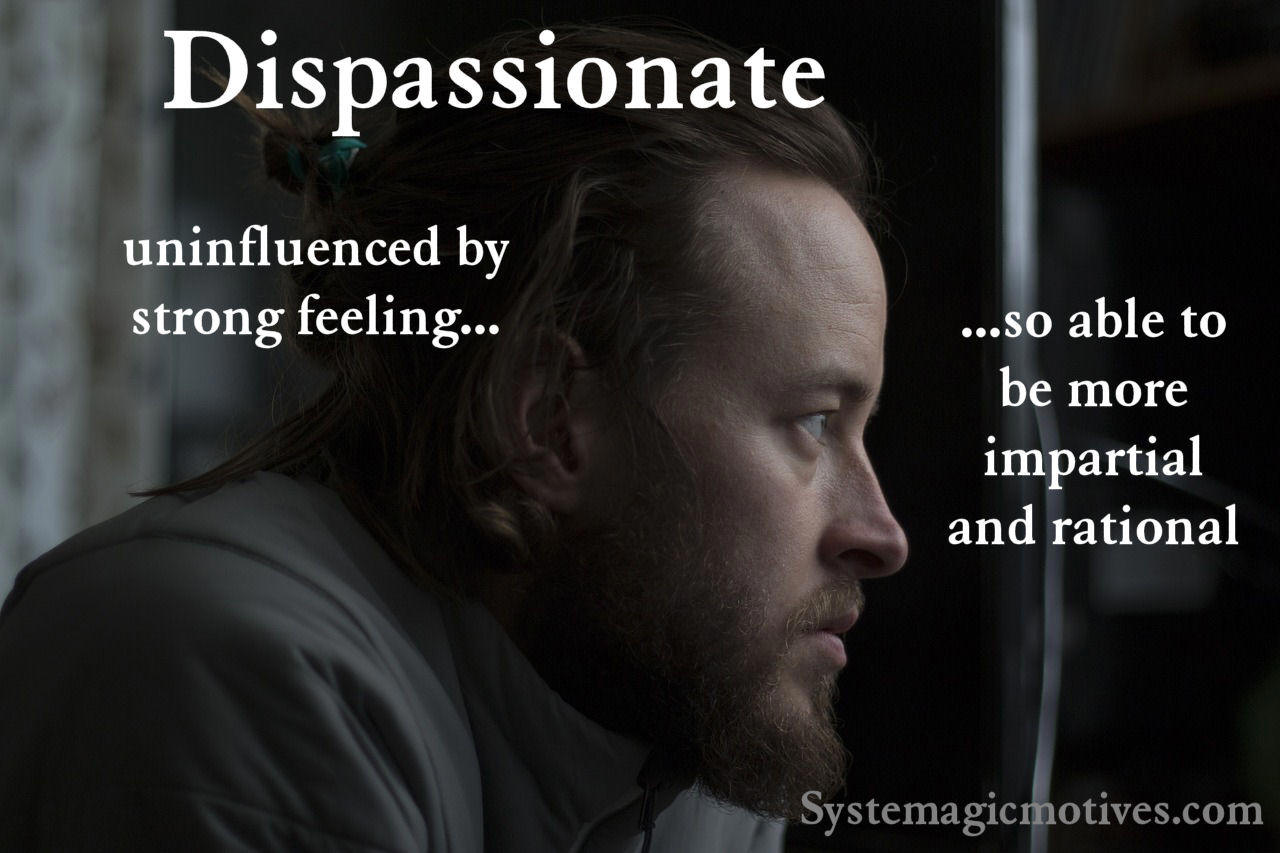

Dispassionate adj. Uninfluencd by strong feeling so able to be mor impartial and rational.
The term "dispassionate" describes a state of being unaffected by strong emotions or personal feelings. It derives from the Latin word "passio," meaning "suffering" or "emotion," and the prefix "dis-," which denotes removal or absence. Therefore, "dispassionate" refers to a demeanor or approach that is characterized by objectivity and a lack of emotional involvement. When someone is dispassionate, they analyze situations or make decisions based on rationality and logic rather than being swayed by personal biases or feelings.
In practical terms, a dispassionate perspective is often valued in fields such as science, law, and journalism, where impartiality and objectivity are crucial for accurate analysis and reporting. For example, a dispassionate judge or researcher would focus on facts and evidence, setting aside personal emotions to ensure fair and unbiased outcomes. Similarly, a dispassionate critic might evaluate a work of art based on its technical merits and adherence to artistic principles, rather than personal preference or emotional reaction.
Overall, "dispassionate" emphasizes the importance of maintaining a clear, unbiased viewpoint in various contexts. It highlights the value of rationality and objective assessment, where decisions and evaluations are made based on reason rather than emotional influence. By remaining dispassionate, individuals can approach situations with clarity and fairness, contributing to more balanced and reasoned judgments.
"Dispassionate objectivity is itself a passion, for the real and for the truth." - Abraham Maslo
Positive Nouns that Describe People